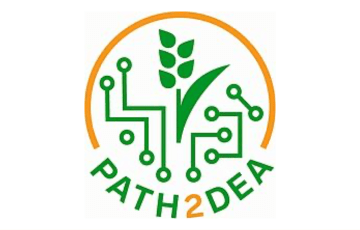
The potential of agroecological farming systems to master many of today’s challenges to the environment, economy, health, and society can be significantly promoted by coupling with digital tools and technologies. PATH2DEA is committed to unlocking digitalisation’s catalysing power to foster European agriculture’s transition towards enhanced sustainability. It will build on farmers’ competences and views and match them with the rich repertoire of digital solutions already available for agriculture, aimed at tailoring digital technologies to users’ needs and fostering wide-range adoption of digital agroecological farming in the EU and associated countries. Strategic engagement by multiple actors includes early adopters of digital agroecological farming represented by six Showcase farms located in different pedo-climatic regions, with hands-on experience for solid consensus validation of the project’s conclusions. PATH2DEA is deeply rooted in the European Agroecology Innovation Ecosystem and will establish itself amidst key players and proven instruments to mediate and connect among disciplines and sectors with a clear ethical-societal perspective. Via interactive discussion rounds, specific situations regarding digital technology uptake and use will be explored and brought to consideration by actors and stakeholders for increasing awareness and understanding. PATH2DEA will deliver a robust knowledge base in the frame of an Open Source Repository of digital tools and technologies in agroecology with decision support functionalities and a well-aligned R&I Roadmap for guiding digital agroecology transition. Finally, PATH2DEA will use its results for bridging towards the upcoming European Agroecology Partnership.
LifeWatch ERIC is leader of WP6, and it is also involved in WP2 (Task 2.2–Mapping and analysis of living labs, research infrastructures and funding mechanisms for agroecology research and innovation) and WP7 (Task 7.1 Development and implementation of the Communication Plan; Task 7.3 Project Final Conference).